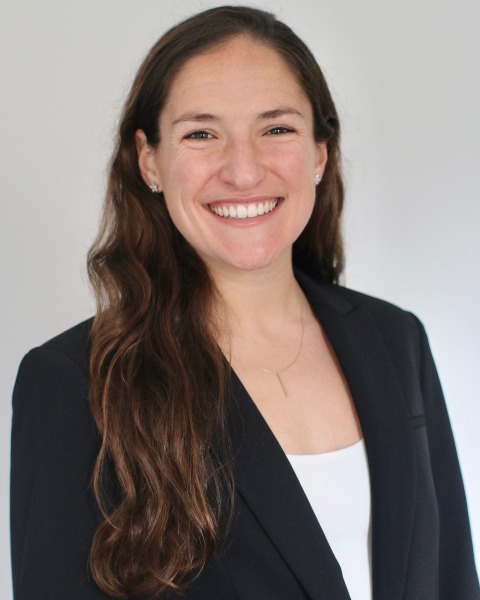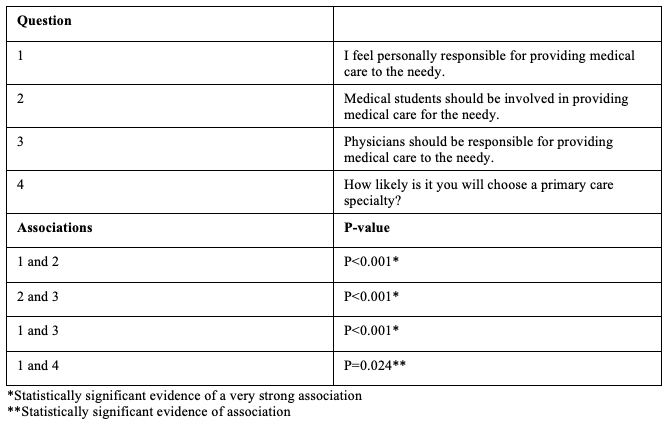Medical Education: Medical Student
Medical Education 12: Student 2
570 - Medical Student Attitudes Towards the Underserved: Is Social Responsibility Tied to Specialty Choice?
Publication Number: 570.326

Alexandra C. O'Kane, MS (she/her/hers)
Medical Student
Georgetown University School of Medicine
Washington, District of Columbia, United States
Presenting Author(s)
Background:
In 2017, the Department of Family Medicine at Georgetown developed a longitudinal Primary Care Leadership Track (PCLT), which was specifically designed to incorporate known factors that increase student interest in primary care careers, including early exposure to primary care, longitudinal mentoring, and continuity of care. Each year, PCLT students who are interested in pediatrics are matched with pediatrician mentors and longitudinal pediatric patients in underserved communities. The core elements of the PCLT are assessed through pre- and post-test validated surveys to the entire class at the beginning of the M1 year and end of M4 year. Responses from three years of M1 surveys have been aggregated. Relationships between medical student attitudes towards the underserved, likelihood of pursuing primary care, and match rates will be evaluated.
Objective:
Describe attitudes of first-year medical students towards care for the medically underserved, and the relationship between these attitudes and the likelihood of pursuing a career in primary care.
Design/Methods:
This is an observational study of survey data collected between 2018-2020. The Medical Student Attitudes Toward the Underserved and Primary Care Attitudes surveys were administered during students’ first semester of coursework. Data was collected and aggregated using Qualtrics.
Results:
Survey response rates from 2018, 2019, and 2020 are displayed in Table 1. Table 2 shows the four questions studied and the associations between student responses to these questions. There was a statistically significant association (p< 0.001) between questions 1-3. Students agreeing or strongly agreeing that they are personally responsible for providing care for the underserved also subscribe to the belief that physicians and medical students should be providing this care. Student responses to question 1 and question 4 also showed an association between a feeling of personal responsibility for providing care to the needy and a likelihood to pursue a career in primary care (p=0.024).
Conclusion(s):
The results from this study indicate that the M1 students who feel a personal responsibility for care of the medically underserved also believe that this responsibility falls on medical students and physicians. Further, this responsibility for caring for the underserved is correlated with a likelihood to pursue a career in primary care, underscoring the importance of programs like the PCLT. Future studies of M4 student data will evaluate student attitudes over time and compare those who match into non-primary care to primary care specialties, including pediatrics..png)

